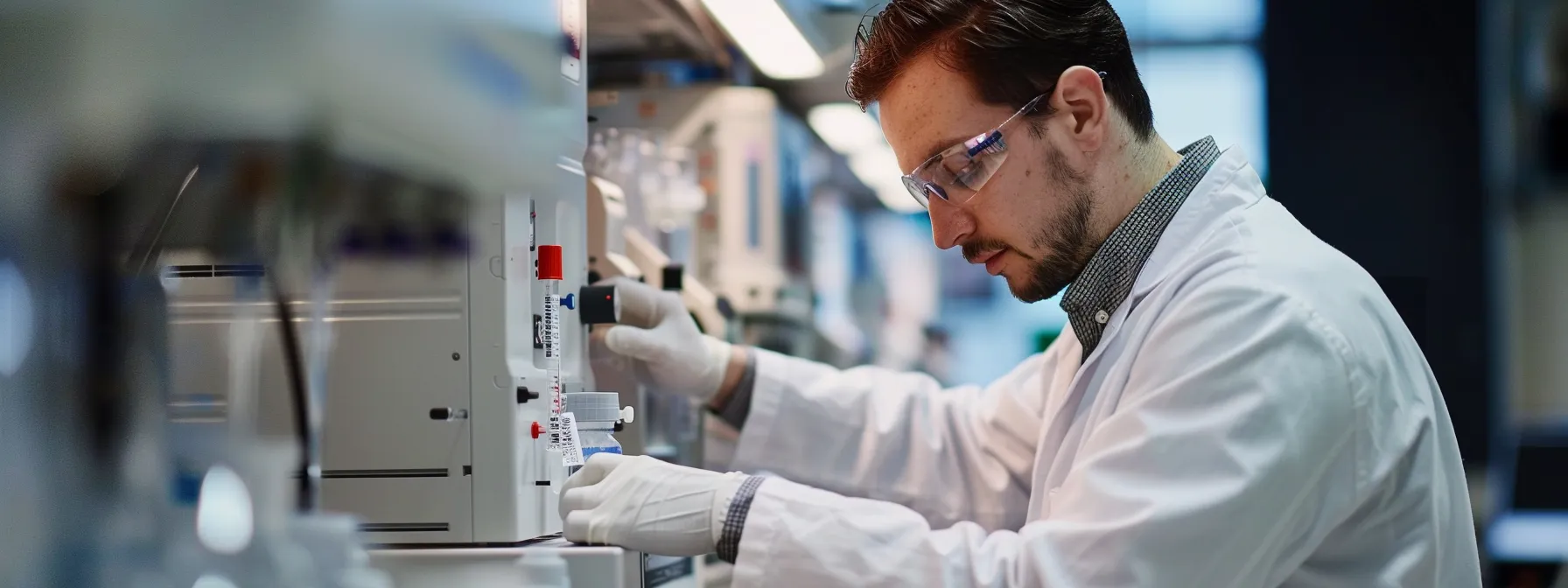Using Research Peptides in Scientific Studies
Research peptides have emerged as a cornerstone in the realm of scientific studies due to their relevance in understanding a myriad of biological processes. These short chains of amino acids, although simpler than proteins, hold immense potential in research and therapeutic applications. Their unique properties allow scientists to delve deeper into the understanding of life at a molecular level, leading to breakthroughs in various fields including medicine, biochemistry, and pharmacology. If you’re interested in the expanding world of peptide research and its implications, keep reading to explore research peptides in detail.
How Research Peptides are Synthesized and Purified for Study

Synthesis of research peptides is a detailed and precise process that typically involves automated solid-phase chemistry techniques. This process allows for the sequential addition of amino acids to a growing peptide chain, which is anchored to a solid resin. The methodology provides a high degree of control over the peptide sequence and composition.
Following synthesis, purification is an essential step, typically conducted through processes like high-performance liquid chromatography (HPLC). This technique separates the desired peptide from impurities based on their chemical properties. The purity of research peptides is crucial for accurate scientific results, hence the meticulous attention to this phase of their preparation.
Additionally, the synthesized peptides need to be characterized to confirm their structure and integrity before use in experiments. This is often achieved using mass spectrometry and analytical HPLC, which ensures the peptide’s mass and sequence align with the intended design.
The Role of Research Peptides in Understanding Protein Functions
Research peptides play a crucial role in decoding the functionalities of proteins. Proteins, which are essentially long chains of peptides, conduct most of the biological activities within the body. By studying shorter peptide segments, scientists can dissect and analyze the functional domains of proteins.
Peptide research also allows for the identification of active sites within proteins, which are key to understanding how proteins interact with other molecules. This insight is fundamental to the design of novel therapies that target these interactions, such as inhibitors for enzymes involved in disease pathways.
Another significant aspect is the use of peptides in studying protein folding and misfolding, which is related to numerous disorders, including Alzheimer’s disease. Synthetic peptides can replicate regions of proteins that are prone to misfolding, providing a model to study the misfolding process and screen for potential treatments.
Challenges and Considerations in the Use of Research Peptides

Despite their advantages, the use of research peptides is not without its challenges. One of the primary issues is the inherent instability of peptides, which can lead to rapid degradation in vivo. This limits their effectiveness, especially in therapeutic contexts, and necessitates the development of strategies to increase their stability.
Another issue is the potential immunogenicity of synthetic peptides. The body’s immune system might recognize them as foreign and mount a response, which can be troublesome for researchers aiming to study the peptide’s effects without immune interference. Managing these reactions is a critical aspect of research peptide application.
Additionally, the specificity of peptides, while an asset in terms of targeted action, can also be a drawback. They might bind only to highly specific targets, limiting their efficacy under the complex conditions present in living organisms, where multiple factors can influence the outcome.
Future Directions of Peptide Research in Biomedical Science

The future of peptide research in biomedical science looks promising, with continuous advancements in synthesis technologies and application methodologies. Enhanced techniques for creating modified peptides that resist degradation and immune detection are paving the way for new therapeutic possibilities.
Biotechnology companies are also exhibiting a growing interest in therapeutic peptides. The current market for peptide therapeutics is expanding, and it is expected that it will continue to grow, reflecting their impact on future medical treatments and diagnostics. With the emergence of startups and established companies in this space, there is great anticipation for what lies ahead in peptide research.
Altogether, the use of research peptides in scientific studies provides an extraordinary window into the intricate workings of biological systems. The immense possibilities for therapeutic applications and the continuous evolution of research technologies ensure that peptides will remain at the forefront of scientific discovery. Overall, the growing interest in peptide research suggests an exciting future for biomedicine, characterized by innovation and transformative potential in treating diseases.
















